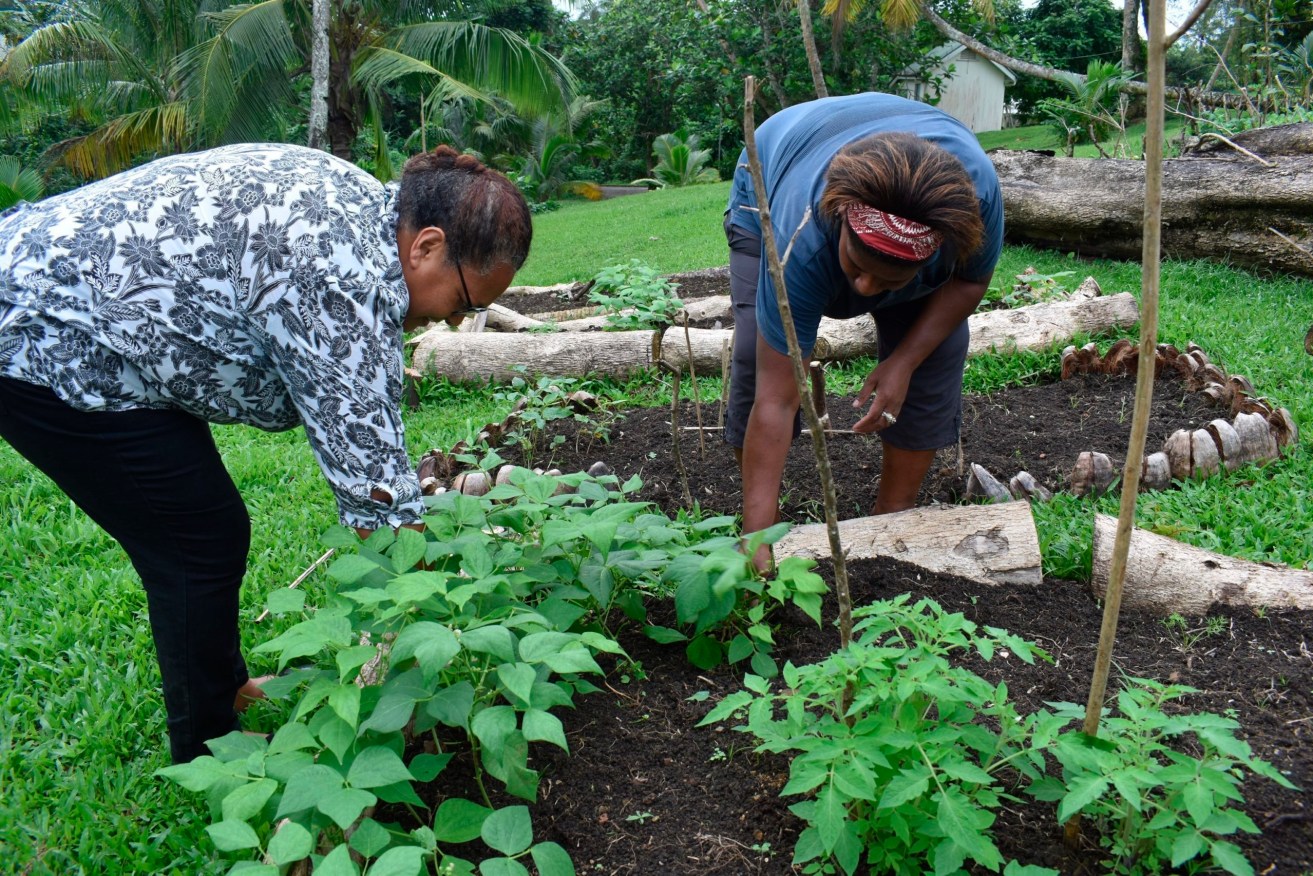Australia must help Pacific neighbours through the pandemic: Morrison
Prime Minister Scott Morrison has promised to help Pacific Island nations recover from COVID-19 and the accompanying economic shock

Staff at the Suva Christian School working in their garden in Suva, Fiji. (Fiji Ministry of Agriculture via AP)
In a National Press Club address today, Morrison said that as Australia prepared for its vaccination program “we have not forgotten our overseas partners, our family here in the region”.
Morrison said key ministers were already working with their counterparts on a “dedicated vaccines program designed around the needs and health systems of our Pacific family and South-East Asian neighbours”.
“The challenges of COVID-19 are not only testing us at home,” Morrison said.
“Australia must use its agency to shape the world in our interests. This starts in our own region.”
Morrison will this week attend the Pacific Islands Forum to discuss the impact of COVID-19, the tourism downturn, and other local issues. He will also promote the Pacific Step-Up program, aimed at forging closer ties in the region as China flexes its economic muscle.
It comes after a report from four United Nations agencies highlighted how the pandemic further disadvantaged some two billion people in Asia and the Pacific who were unable to afford healthy diets.
High prices for fruits, vegetables and dairy products, coupled with the downturn in tourism and other industries, has put people more at risk.
“Food prices and available incomes govern household decisions on food and dietary intake,” the report states.
“But the outbreak of COVID-19 and a lack of decent work opportunities in many parts of the region, alongside significant uncertainty of food systems and markets, has led to a worsening of inequality, as poorer families with dwindling incomes further alter their diets to choose cheaper, less nutritious foods”
In 2019, more than 350 million people in the Asia-Pacific region were undernourished, with tens of millions of children either too short for their age or two thin for their height.
“The majority of these children live in Southern Asia with nearly 56 million stunted and more than 25 million wasted,” the report states.
“At the same time, overweight and obesity has increased rapidly, especially in South-Eastern Asia and the Pacific, with an estimated 14.5 million children under five being overweight or obese.”
The agencies have called for health campaigns backed by changes to the supply chain so that people who want to eat healthy can do so. Nutrition and food safety improvements in street food markets would also help.
“Leveraging these systems, in a coordinated fashion that expands the opportunities to address barriers to accessing and consuming healthy diets, will help countries and the people of Asia and the Pacific recover faster from the economic impact of COVID-19, and be better prepared for future crises,” the report states.
The economic crisis in the region has been exacerbated by Australians no longer holidaying overseas and spending their tourist dollars in poor communities.
There is also the risk of Pacific Island countries not being able to compete for COVID-19 vaccines. This could leave vast populations unvaccinated until 2025, potentially extending the tourism drought.












